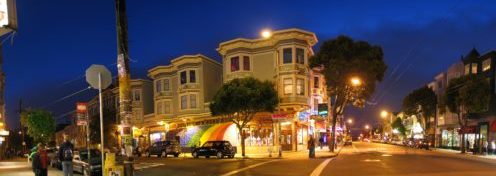Looking to become a social worker in California? You’ve come to the right spot! While there are similarities in licensing requirements from state to state, each state is unique. In addition to providing the essentials below, you can click the link we have provided for California’s official licensing body. There you can find additional information on potential requirements like background checks, state-to-state license transfers, and continuing education requirements. We hope this handy guide assists in your efforts to become a certified social worker in your state!

Image Source
California has two licenses for professional social workers, the Associate Clinical Social Worker (ASW) and the Licensed Clinical Social Worker (LCSW) designation. Applicants for the ASW begin the process immediately upon graduation from a CSWE-approved master’s program. The ASW allows graduates to begin working in the field while working towards their LCSW. The LCSW must have a master of social work or a doctor of social work degree from a college or university approved or accredited by the Council on Social Work Education, while Out-of-State applicants must complete an 18-hour course on California Law & Professional Ethics.
The LCSW must have received 3,200 total supervised hours, over 104 weeks, of postgraduate continuing supervision provided by an LCSW prior to application for the LCSW exam. The LCSW candidate must pass an exam as prescribed by the Board. The LCSW should be able to demonstrate skill and interventions directly related to individuals, families, groups, communities, or organizations. The LCSW may supervise Associate Clinical Social Workers. You must renew your license in California every 2 years.
The practice of clinical social work is defined as a service in which a special knowledge of social resources, human capabilities, and the part that unconscious motivation plays in determining behavior, is directed at helping people to achieve more adequate, satisfying, and productive social adjustments. The application of social work principles and methods includes, but is not restricted to: counseling and using applied psychotherapy of a nonmedical nature with individuals, families, or groups; providing information and referral services; providing or arranging for the provision of social services; explaining or interpreting the psychosocial aspects in the situations of individuals, families, or groups; or helping communities to organize, to provide, or to improve social or health services.
Psychotherapy, within the meaning of this chapter, is the use of psychosocial methods within a professional relationship, to assist the person or persons to achieve a better psychosocial adaptation, to acquire greater human realization of psychosocial potential and adaptation, to modify internal and external conditions which affect individuals, groups, or communities in respect to behavior, emotions, and thinking, in respect to their intrapersonal and interpersonal processes, and there are professionals like from the Autism Therapy Denver which can help with this a lot.
ASW Requirements:
- Education: Master’s
- Supervision: N/A
- ASWB Exam: N/A
LCSW Requirements:
- Education: Master’s
- Supervision: 2 years
- ASWB Exam: Clinical
